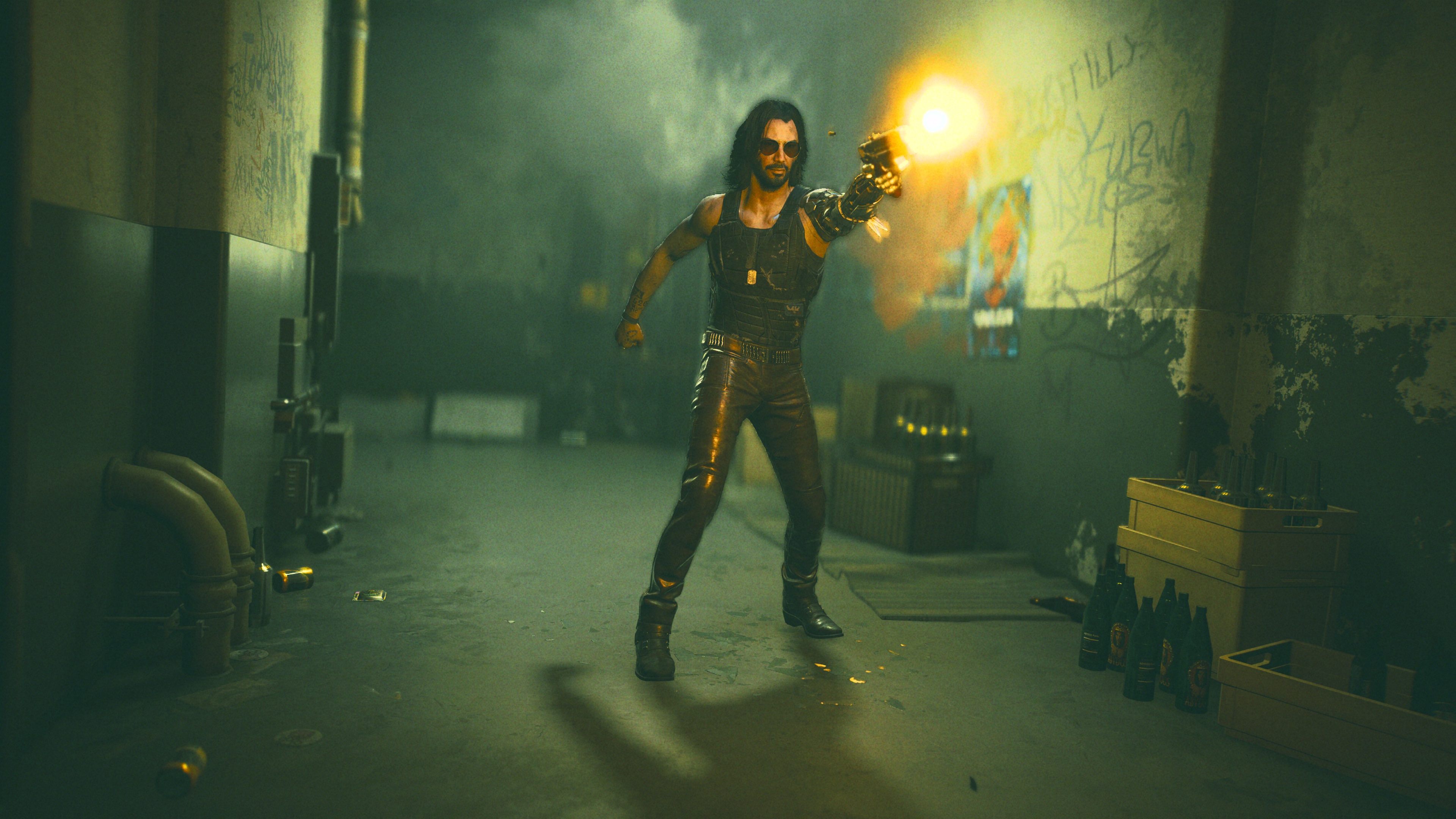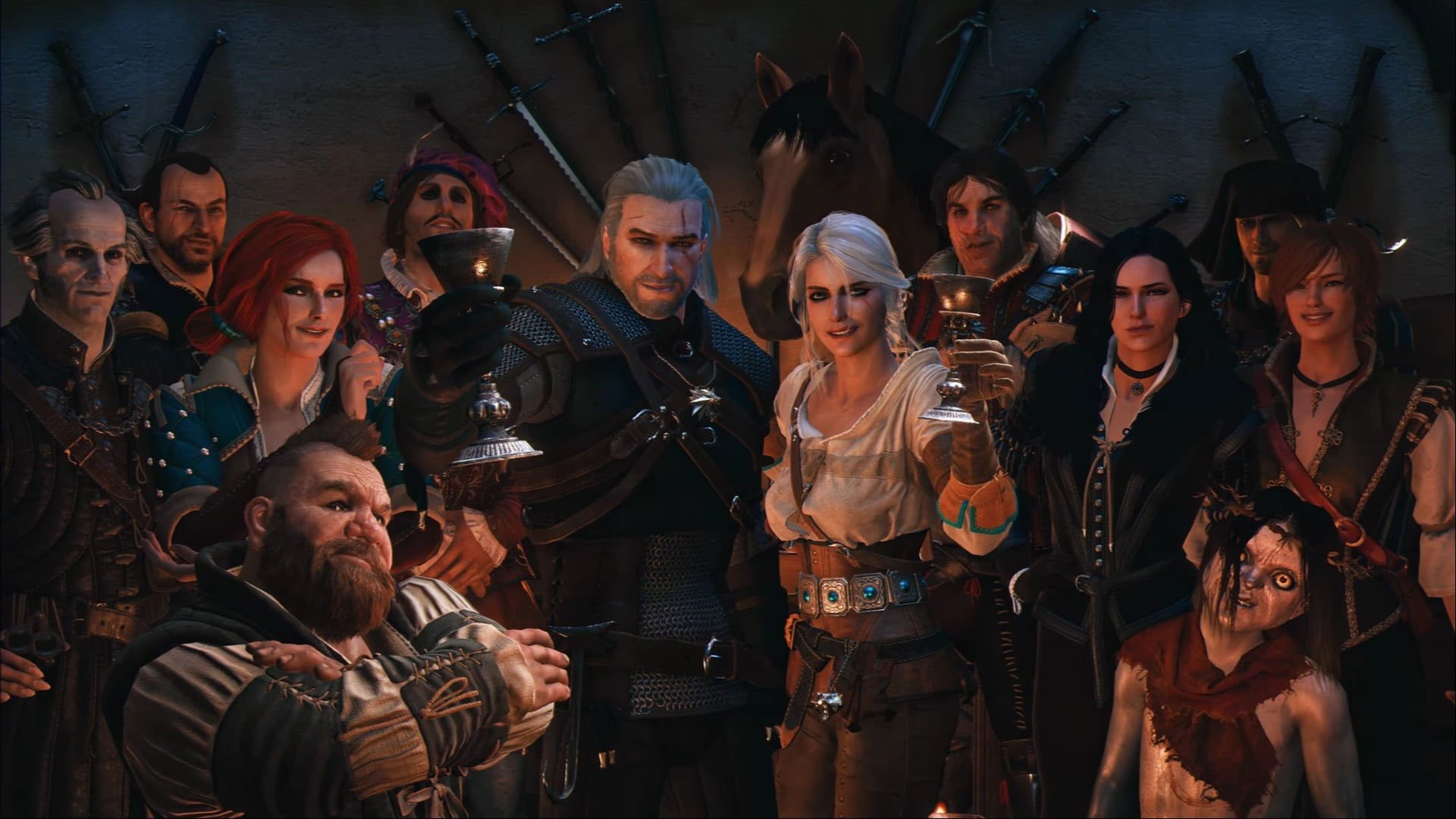
Cyberpunk 2077 quest director Pawel Sasko says he originally fell in love with the Night City setting after playing the 1988 TTRPG and finding "traditional D&D" a little too "generic" in comparison.
In an interview with TheNeonArcade, Sasko spoke at length about the early games that sparked his love for the Cyberpunk universe, the kernel of which was a TTRPG series that started in 1988. Sakso explained that his initial interest in TTRPGs came from playing the 2000 RPG Vampire: The Masquerade - Redemption as a teenager, which inspired him to pick up the original Vampire: The Masquerade pen-and-paper book. After playing through that, he moved to the Cyberpunk TTRPG and found it "inspiring, intriguing, and different."
"This is what I loved about [Vampire: The Masquerade]: the dark world, all those powers you can have. Same for Cyberpunk. For me, fantasy, let's say the traditional D&D, was a bit too generic; a bit too, I would say, normal. I always felt like it's Lord of the Rings, it's Tolkien, it's this fantasy-ish story about so many books that I've read about some kind of a fantasy. I read the majority of Conan the Barbarian books when I was a kid because I really liked them.
"I read a lot, really a lot of fantasy at that time. I absolutely loved it. But a lot of it just felt like generic fantasy. Because of that, both Cyberpunk and Vampire were huge things that stained my memory. This is how I remember that time. This is when I was introduced to that. Trying to figure out building the sessions for my players, figuring out what they do. They always have to do everything that I didn't assume they would do, I had to improvise and figure out how to do that. So this was my introduction actually."

Sasko, who was lead quest designer on The Witcher 3, also explained that developing Cyberpunk was "much harder" due to the very different cultural setting relative to CDPR's medieval Europe-inspired fantasy series.
"There's this method that I'm teaching my designers that is called construction," he said. "The construction is a way for you, when you're studying the culture, in movies and books, is a way to look into a piece of art and deconstruct it into pieces and understand 'what is the genre, what is the theme of the story you're telling? What are the components and elements of that', and through the construction, one of the reasons we do our stories so well is because we use the construction to really understand a given IP and to really be able to focus on this."
Specifically, Sasko explained how even the aforementioned "generic" fantasy tropes can be used in inventive and even topical ways to explore original themes when developers truly understand the intention of a narrative franchise.
"I think we are surrounded by so much generic stuff," Sasko said. "So much fantasy, so much science-fiction, and all that; it's just really generic things. You sort of take it because it's always been there. Let's say, elves are a great example. You have fantasy, you have elves, right? But how elves are actually done in The Witcher is so unique. Because elves are addressing the issue of relocation of refugees, of one nation being pushed out by another, and of this hatred between ethnicities ... you need to look into a given IP and think about its soul."
Cyberpunk 2077 recently finalized its redemption arc with the release of the acclaimed Phantom Liberty expansion, leaving CDPR to put a well-deserved bow on the 2020 RPG and move on to the sequel.
Here are the best RPGs to get lost in today.







